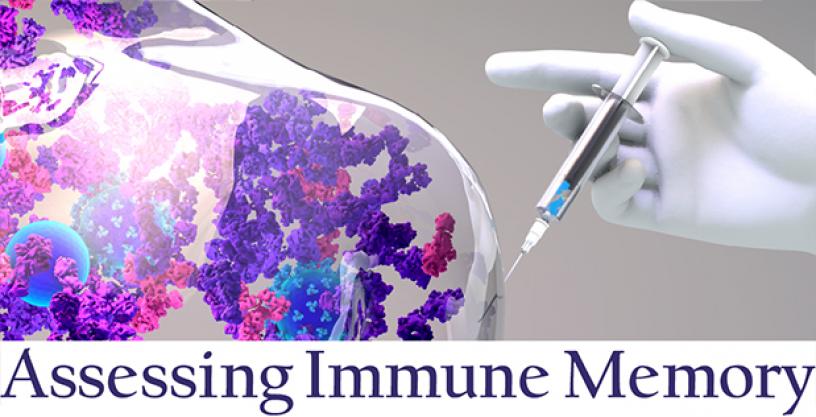
Assessing Immune Memory performers aim to identify key to long-lasting immunity
Jan 13, 2023
According to recent studies cited in Science Magazine, many vaccines — including those for flu, mumps and other diseases — may lose their effectiveness faster than official immunization recommendations suggest1. DARPA has selected teams of researchers to support the Assessing Immune Memory (AIM) program, which seeks to develop a research and evaluation tool that can predict early on whether a given vaccine candidate will provide long-lasting immune protection.
Warfighters must deploy to regions of the world that present immunological challenges due to endemic diseases not previously encountered, or where there are pathogens or biothreats for which there are no vaccine options. The ability to rapidly select a future vaccine candidate that offers the longest duration of immune protection among all the potential options would greatly enhance operational readiness. By leveraging host-immune mechanisms in response to vaccination, AIM intends to provide the Department of Defense with the capability to predict effective vaccine duration of response prior to engaging in years-long clinical studies.
“The current state of vaccine durability assessment is to take a ‘wait-and-see’ approach, largely owing to ignorance of mechanisms underlying immune memory, as well as an inability to measure the cellular contributors that invoke long-lasting immune protection,” noted Dr. Michael Feasel, AIM program manager. “AIM will take a systems-level view of the response to vaccination and explore the mechanisms that lead to long-lasting protection. The plan is that this will then be implemented as a tool to predict vaccine duration of protection without waiting years for clinical trial results.”
AIM is a five-year program that is divided into two sequential phases. The goal of Phase 1, “Immune Memory Road Map,” is to identify cell and signaling contributors to generate a “road map” of immune memory. Phase 2, “Road Map Generalizability and Tool Validation,” will focus on assembling and validating an accurate assessment tool. The varied approaches will utilize measurements from preclinical animal models and advanced computational techniques with a goal to establish a way to predict how long a vaccine may protect a person, without needing to wait years for clinical trials.
The selected performers include:
- Columbia University – Dr. Donna Farber, principal investigator (PI)
- Icahn School of Medicine at Mt. Sinai – Dr. Stuart Sealfon, PI
- Stanford University – Dr. Bali Pulendran, PI
- University of Maryland, Baltimore – Dr. Nevil Singh, PI
Additional details on the AIM program can be found in the broad agency announcement: https://sam.gov/opp/ddbd04d4961f49acb576c529f837af93/view.
# # #
Media with inquiries should contact DARPA Public Affairs at outreach@darpa.mil
Associated images posted on www.darpa.mil and video posted at www.youtube.com/darpatv may be reused according to the terms of the DARPA User Agreement.
Tweet @darpa
1 Cohen, J. (2019, April 18). How long do vaccines last? The surprising answers may help protect people longer. Science Magazine. https://www.science.org/content/article/how-long-do-vaccines-last-surprising-answers-may-help-protect-people-longer
